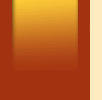


| Web Resources Chapter 1: Working With Standards and Benchmarks Chapter 1: Working With Standards and Benchmarks No Child Left Behind: No Child Left Behind Glossary: Education Glossary of Terms: Constructive teaching through the deconstruction of standards: Mid-continent Research for Education and Learning: International Reading Association (IRA): National Reading Conference (NRC): National Council of Teachers of English (NCTE): National Council of Teachers of Mathematics (NCTM): National Council for the Social Studies (NCSS): National Association of Biology Teachers (NABT): National Science Teachers Association (NSTA): The National Academies Press (NAP): American Association of Physics Teachers (AAPT): American Council on the Teaching of Foreign Languages (ACTFL): National Association for Music Education (MENC): American Alliance for Health, Physical Education, Recreation and Dance: National Association for Sports and Physical Education: National Art Education Standards: International Society for Technology in Education: Chapter 2: Philosophies of Curriculum and Instruction Paideia Institue: National Heritage Academies: Core Knowledge Foundation: Stanford Encyclopedia of Philosophy – Philosophy for Children: Jerome Bruner and the Process of Education: Community Montessori: Institute for Advancement of Philosophy for Children: Carl Rogers on Education: Professional Profile – Carl Rogers: A Science Odyssey: People and Discoveries: Abraham Maslow: Professional Profile – Abraham Maslow: John Dewey: Sylvan Learning: Kumon: An Interview with Henry Giroux: National Service Learning Clearinghouse: Chapter 3: The Role of Assessment Inside the Black Box: Raising Standards Through Classroom Assessment: The Association for Direct Instruction: Journey to Excellence: Direct Instruction Resources: An Evaluation of the Direct Instruction Program – Baltimore City Public School System The Blue Book of Grammar and Punctuation: National Educational Technology Standards for Students: Chapter 5: Language, Word Study, and the Tools of Writing Jerome Bruner and the Process of Education: Professional Profile – Jerome Bruner: Teaching a Concept: Chapter 6: Strategies for Listening, Speaking, Viewing, and Visually Representing Hilda Taba (UNESCO Publications): Chapter 7: Children's and Young Adult Literature as a Tool for the Language Arts Japanese-American National Museum: National Center for the Preservation of Democracy: Smithsonian National Museum of American History: Chapter 8: Language Arts and the Content Areas Japanese-American National Museum: National Center for the Preservation of Democracy: American Lung Assocation: Chapter 9: Workshops in the Language Arts Curriculum Jigsaw Classroom: Professional Profile – Eliot Aronson: Teaching With Documents: Lesson Plans: Helsinki Accord: Universal Declaration of Human Rights: Chapter 11: Middle Childhood Language Arts: Sandy Cabernathy's Third- and Fourth-Grade Classroom Scientific Inquiry-Based Learning for K-12 Students and Teachers – ANOVA Science: CIBL – Center for Inquiry-Based Learning: YouthLearn: Inquiry-Based Learning: BIO – ED On-Line: Scientific Inquiry: Learning Science by Doing Science: http://www.bioedonline.org/slides/slide01.cfm?tk=10 Science Learning Network: NCSI Learning Resources - Using Inquiry to Teach Social Studies: Inquiry -based Learning: Demonstration: Inquiry -Based Learning Curriculum Resources: Heldref Publications: NSF: KDI: Inquiry Learning Forum (Multidisciplinary): Battle Creek Area Math + Science Center: Chapter 14: Developing Original Instructional Units Based on Standards, Benchmarks, and Grade Level Expectations Merriam-Websters Words of the Year 2005: Concept to Classroom: Interdisciplinary Curriculum in Your Classroom: Virginia Department of Education: Interdisciplinary Curriculum Models: Interdisciplinary Curriculum Themes: UNESCO: Designing an Interdisciplinary Curriculum in Science and Technology – UNESCO: Access Excellence: The National Health Museum: CES Natiional Web: Asking the Essential Questions: Curriculum Development: Math Forum – Curriculum Development: |
